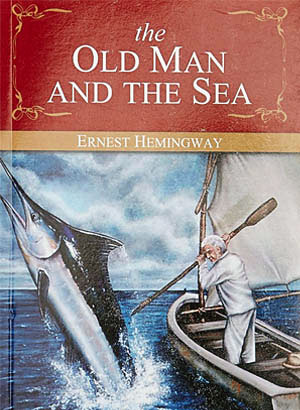Ахисан дунд түвшиний програм
Уг түвшин нь А В гэсэн хоёр дэд түвшинд хуваагдах ба түвшин тус бүр нь долоо хоногт 3 удаа орох ба нэг удаагийн хичээл нь 1 цаг 30 минут үргэлжлэнэ. Нийт хичээлийн тоо нь 24 удаа буюу 8 долоо хоног үргэлжлэнэ.
| No | Titles / Topics | Functions | Grammar | Listening | Hours |
| 1. | That’s what friends are for!; Personality types and qualities; relationships; turn ons and turn offs | Describing personalities; expressing likes and dislikes; agreeing and disagreeing; complaining | Relative pronouns as subject and object; clauses with it + adverbial clauses with when | Linked sounds; Listening for opinions; listening for descriptions of people | 3 lessons/4 hours 30 minutes |
| 2. | Career moves Jobs; unusual careers; job skills; summer jobs | Talking about unusual careers; describing jobs; discussing the pros and cons of jobs | Gerund phrases as subjects and objects; comparisons with adjectives, verbs, nouns, and past participles | Stress with compound nouns Listening to descriptions of summer jobs; listening for likes and dislikes | 3 lessons/4 hours 30 minutes |
| 3. | Could you do me a favor? Favors; formal and informal requests; messages | Making unusual requests; making indirect requests; accepting and declining requests | Request with modals, if clauses, and gerunds; indirect requests | Unreleased consonants; Listening to people making, accepting, and declining requests | 3 lessons/4 hours 30 minutes |
| 4. | What a story! The media; news stories; exceptional events | Narrating a story; describing events in the past | Past continuous vs. simple past; past perfect | Intonation in complex sentences; Listening to news broadcasts; listening to a narrative about a past event | 3 lessons/4 hours 30 minutes |
| 5. | Crossing cultures Cultural comparisons and culture shock; moving abroad; emotions; customs; tourism and travel abroad | Talking about moving abroad; expressing emotions; describing cultural expectations; giving advice | Noun phrases containing relative clauses; expectations: the custom to, (not) supposed to, expected to, (not) acceptable to | Word stress in sentences; Listening for information about living abroad; listening to opinions about customs | 3 lessons/4 hours 30 minutes |
| 6. | What’s wrong with it? Consumer complaints; everyday problems; electronics; repairs | Describing problems; making complaints; explaining something that needs to be done | Describing problems with past participles as adj-s and with nouns; describing problems with keep + gerund, need + gerund, and need + passive infinitive | Contrastive stress; Listening to people exchange things in store; listening to complaints; listening to repair people describe their jobs | 3 lessons/4 hours 30 minutes |
| 7. | The world we live in The environment; world problems; current issues | Identifying and describing problems; coming up with solutions | Passive in the present continuous and present perfect; prepositions of cause; infinitive clauses and phrases | Reduction of auxiliary verbs; Listening to environmental problems; listening for solutions | 3 lessons/4 hours 30 minutes |
| 8. | Lifelong learning Education; learner choices; strategies for learning; personal qualities | Asking about preferences; discussing pros and cons of different college majors talking about learning methods; talking about personal qualities | Would rather and would prefer; by + gerund to describe how to do things | Intonation in questions of choice; Listening in questions of choice; Listening to descriptions of courses; listening for additional information | 3 lessons/4 hours 30 minutes |
| 9. | At your service Everyday services; recommendations; self-improvement | Talking about thing you need to have done; asking for and giving advice or suggestions | Have or get something done (active and passive); making suggestions with gerunds, infinitives, modals + verbs, and negative questions | Sentence stress; Listening to suggestions for self-improvement | 3 lessons/4 hours 30 minutes |
| 10. | The past and the future Historic events and people; biography; the future | Talking about the future; talking about things to be accomplished in the future | Referring to time in the past with adverbs and prepositions: during, in ago, from ….to, for, since; predicting the future with will, future continuous, and future perfect | Syllable stress; Listening for opinions about public figures; listening to predictions | 6h |
| 11. | Life’s little lessons Milestones and turning points; behavior and personality; regrets | Describing rites of passage; describing turning points; describing regrets and hypothetical situations | Time clauses: before, after, once, the moment, as soon as, until, by the time; describing regrets and hypothetical situations with should not have + past participle and if clauses + past perfect | Reduction of have and been; Listening to descriptions of important events; listening to regrets and explanations | 3 lessons/4 hours 30 minutes |
| 12. | The right stuff Qualities for success; successful businesses; advertising | Describing qualities for success; describing features; giving reasons for success; interviewing for a job; talking about ads and slogans | Describing purpose with infinitive clauses and infinitive clauses with for; giving reasons with because, since, because of, for, due to, and the reason | Reduced words Listening for features and slogans | 3 lessons/4 hours 30 minutes |
| 13. | That’s a possibility Pet peeves; unexplained events; reactions; predicaments and advice | Making conclusions; offering explanations; describing hypothetical events; giving advice for predicaments | Past modal for degrees of certainty: must (not) have, may (not) have, might (not) have, could (not) have; past modals for opinions and advice; should (not) have, could (not) have, would (not) have | Reduction in past modals Listening to explanations; listening for the best solution | 3 lessons/4 hours 30 minutes |
| 14. | Behind the scenes How a movie is made; media professions; processes; the entertainment industry | Describing how something is done or made; describing careers in the media | The passive to describe process with is/are + past participle and modal + be + past participle; defining and nondefining relative clauses | Stress in compound nouns; Listening to a producer describe his work; listening for personality traits | 3 lessons/4 hours 30 minutes |
| 15. | There should be a law! Recommendations; opinions; social issues; controversial issues | Giving opinions for and against controversial issues; offering a different opinion; agreeing and disagreeing | Giving recommendations and opinions with passive modals; should be, ought to be, must be, has to be, has got to be; tag questions for opinions | Intonation in tag questions Listening for solutions to everyday annoyances; listening to issues and opinions | 3 lessons/4 hours 30 minutes |
| 16. | Challenges and accomplishments Challenges; accomplishments; goals; volunteering | Describing challenges, frustrations, and rewards; discussing traits needed for meeting challenges; talking about the past and the future | Complex noun phrases containing gerunds; accomplishments with the present perfect and simple past; goals with the future perfect and would like to have + past participle | Stress and rhythm Listening to challenges and rewards of people’s work; listening for people’s goals for the future | 3 lessons/4 hours 30 minutes |











